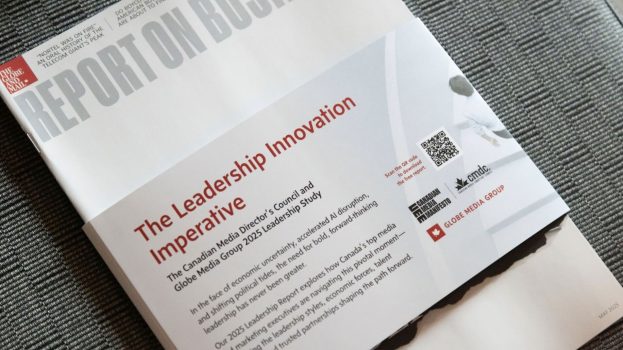Louis Tetu was in a pickle.
As chief executive officer of Recruitsoft.com, a 10-month-old San Francisco firm that manages employee recruiting and hiring for major corporations entirely over the Web, the Quebec-born Tetu faced a challenge common to all ‘dot-com’ infants: His company lacked an established bricks-and-mortar brand that could be parlayed into success on the Internet.
But finding an advertising agency to create a branding campaign for his Web-based business was only part of his problem. The real task was finding an agency that would give Recruitsoft the continuous attention it needed in its crucial formative years. It needed an agency where it wouldn’t be forgotten amidst a stable of larger clients.
So, when Tetu approached Montreal-based Bos a few months back, he did so with an agenda: He wanted the shop to take an equity stake in his company as part of the overall compensation package.
It wasn’t that the privately held Recruitsoft was strapped for cash. Montreal entrepreneur Charles Sirois, chairman and chief executive officer of Teleglobe and a major stakeholder in Microcell Solutions, is an investor, and the company is well-backed by Canadian and U.S.-based venture capitalists. Rather, Tetu figured the best way of securing the agency’s commitment was if it had ‘some skin in the game,’ as he phrases it.
‘With the Internet, you need to have a lot of flexibility,’ he explains. ‘You need to adapt quickly and react quickly, [and] you want the agency to view this as an ongoing mandate as opposed to a discrete project. The most important thing for me is to make sure they have enough at stake.
‘Not enough (advertising) firms are willing to put their money where their mouth is,’ Tetu adds.
Obviously, an ad shop must believe in its client – and in the feasibility of its business model – before it even considers taking options or stock in lieu of cash payment. But the lure of the Internet can be difficult to resist, especially when the media is continually aflutter about soaring Web stocks like Amazon.com and eBay.
‘If a company makes it really big, you have a chance to make way more than the traditional 15%,’ agrees Claude Carrier, vice-president of Bos in Toronto. ‘It creates a real partnership with the client that solidifies the relationship. Now you’re taking the risk, too. I think you’ll see more people doing it.’
Already, Recruitsoft counts National Bank of Canada, Teleglobe, Microcell, Bombardier and Lear Jet as its customers, a client list that no doubt helped Carrier with his decision to take an equity slice of the company. In this case, Bos calculated the value of the work it was supplying to Recruitsoft, and was compensated with stock options for about 50% of this figure, based on the company’s current value.
It’s a decision both parties feel comfortable with, although it’s far too early to assess whether it will work. Bos just launched a business-to-business campaign in September to promote Recuitsoft to the top 1,000 corporations in North America, targeting human resources executives and vice-presidents with a mix of direct marketing, Internet advertising, PR, and print ads in business publications.
Because this type of payment plan can put a crimp on an agency’s cash flow, Carrier says it’s imperative that agencies select their partners carefully and have other clients on their roster that provide a steady stream of revenue.
But while most Canadian shops would probably balk at the prospect of taking stock from an unproven Internet start-up, Carrier has demonstrated he’s willing to gamble. He recently signed another such deal with Softacoustik, a Quebec City-based company whose products allow computers to play digital audio in hi-fi, and he took all of his payment in equity – an arrangement that would give most agency principals heart palpitations.
‘The payback to the agency, the opportunity for the agency to make profit in this program, is to have its customers be commercially successful. Softacoustik is attractive because the agency has a chance to participate in the upswing,’ says Softacoustik president Richard Miville.
‘I think Bos and Softacoustik have a lot in common in terms of philosophy and corporate culture. We have the California way of doing things,’ he adds, referring to his time spent at Silicon Graphics.
The California reference is more than an interesting aside, however, as the equity-based compensation model was invented in Silicon Valley, where ad agencies, banks, accountants, employees and even lawyers often receive stock options in dot-coms in exchange for their services. In theory, at least, this model actually delivers on the performance-based compensation model clients have been seeking for years.
‘We always try to negotiate some kind of equity or incentive with all of our clients,’ says Nigel Carr, managing partner and general manager of San Francisco-based ad shop Kirshenbaum Bond & Partners, which currently has about eight such deals in place. ‘We had one dot-com client who didn’t want to give us stock, and we insisted on it. The argument went on for about three months.’
But not everyone in California shares Carr’s sentiments. Sean Ehringer, creative director and head of art for San Francisco-based Leagas Delaney, says his agency refuses to take equity in Internet start-ups because of the precious few who actually succeed.
‘When you think of Internet companies and how management can shift in a day, and how they can recreate their business plan in a day, it’s difficult to figure out exactly what you’re buying,’ he says, adding that Leagas-Delaney receives several calls a day from dot-coms looking for help with their advertising. ‘[Nowadays] agencies aren’t just trying to evaluate the marketing problem, but the actual business plan and viability of the company. If the [odds] are one in 100, you don’t keep hanging out at the craps table.’
With few exceptions, most Canadian agencies seem to share Ehringer’s suspicion of equity-based compensation. Although some shops, like Vickers & Benson and TAXI Advertising & Design, say they would strike such deals if the conditions were favourable, many agencies – particularly multinationals – seem unwilling to assume the risk.
‘It’s very tempting,’ acknowledges Jim McKenzie, president of Leo Burnett in Toronto. ‘[But] it’s especially risky when it’s a start-up. You could end up with a lot of unpaid bills.’
Geoff Genovese, president and CEO of Envoy Communications Group in Toronto, has yet to take an equity stake in an Internet company, despite the fact that dot-coms account for nearly half of his U.S. client base – and he doesn’t plan on taking a stake any time soon.
‘We’re very particular on just who we do business with,’ he says, ‘there are so many bad ideas out there that are just trying to capitalize on the market. We try to pick and choose which companies we think have a successful business plan and are well-financed, and we just try to move forward with them,’ he says.
Envoy, which last year purchased New York-based advertising agency Hampel Stefanides, has accrued an enviable portfolio of U.S.-based Internet clients like CDNow, National Discount Brokers, PhoneFree, Internet Sports Network and Procurenet.com.
Genovese admits he wishes he had taken ‘seed stock’ in some of these companies (CDNow, for example, is now the largest online CD retailer in the world), but he says many of the successful dot-com start-ups are reluctant to part with their equity.
‘We find the good ones have got the capital and they think their equity is cheap, so they’re not giving it away prior to an initial public offering,’ he says.
And while marketing is an important part of any business’ success, it’s only one part, points out Mike Fyshe, president of BBDO Canada. Even though an agency may be an equity holder, it would still have no control over product pricing, sales and distribution, he cautions.
According to Tetu, however, clients are often in the same situation. When a company opens up its coffers and shells out for a large marketing campaign, it has to trust that its agency partner will hold up its end of the bargain – it is, after all, a partnership.
‘When we pay the bills to [agencies] it’s often a blank cheque,’ he says. ‘Frankly, I don’t want to work with an agency that doesn’t think I can survive.’
Because larger agencies are often saddled with huge overheads, few are willing to take payment in the form of stock options, since they may have to wait years – forever, in the worst case scenario – to see a return. But for more nimble shops that are willing to gamble, the notion of equity-based compensation could provide smaller Canadian agencies with a profitable niche.
‘Virtually every dot-com we’ve talked to has brought up [equity compensation],’ says Chris Staples, who recently left Vancouver-based Palmer Jarvis DDB with two co-workers to open a new shop called Rethink, which currently has a pair of Internet clients.
Although both clients are on the conventional payment plan, Staples says he’d be more than willing to hammer out an equity compensation plan with future clients. ‘We’re very entrepreneurial and we’re open to taking risks. If you’re going to work with dot-coms in the U.S., you have to share their value system. If you don’t share their attitude toward risk-taking, you shouldn’t be there.’






















